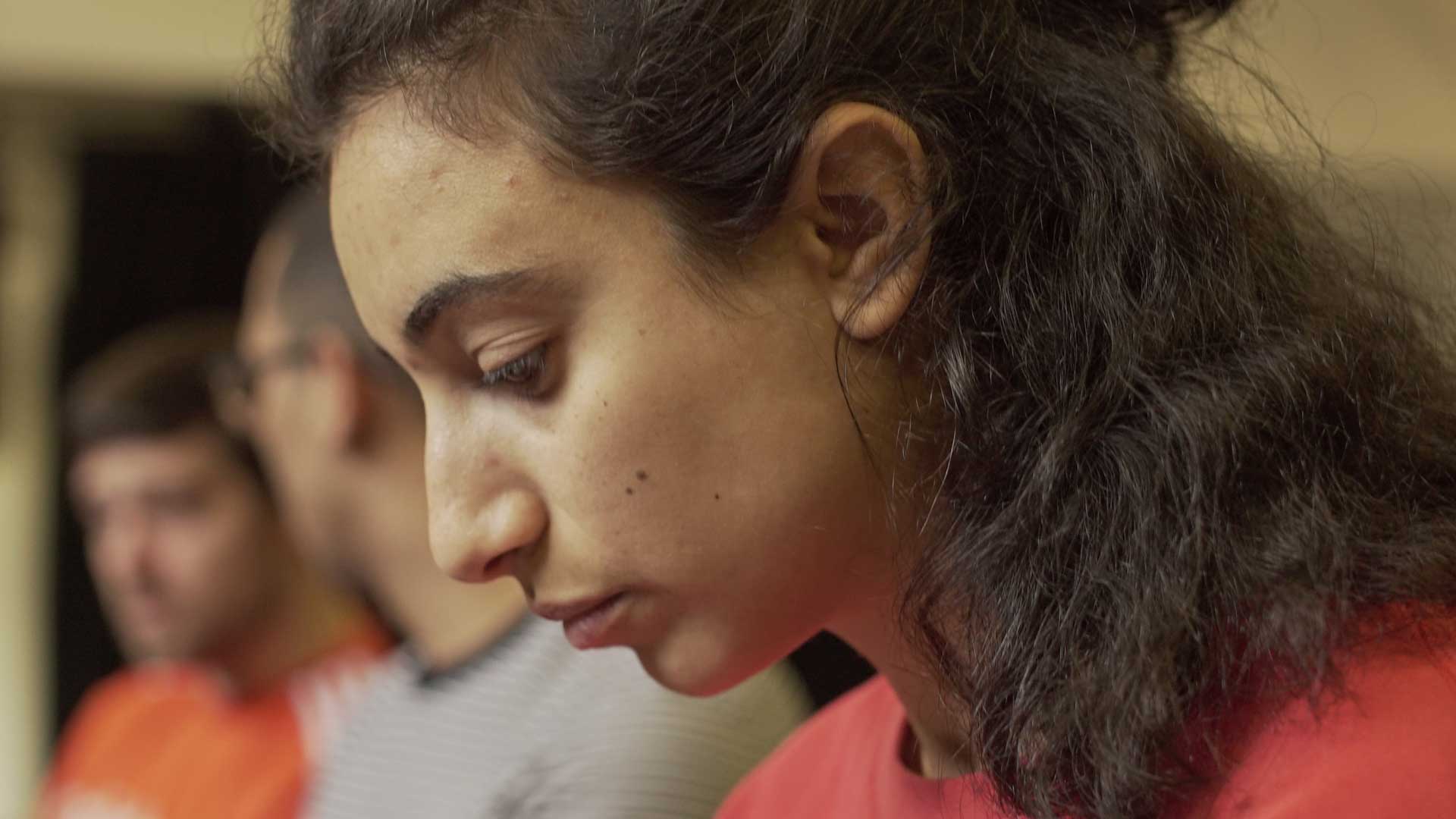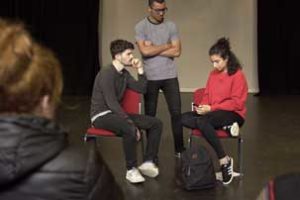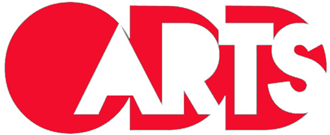
The Ebb and Flow of Hate Speech
After the Manchester Arena bombing in 2017, Islamophobia was fuelled and religiously aggravated hate crime more than doubled in Greater Manchester.
This discrimination brought about the creation of Blame & Belonging: Odd Arts’ latest performance and workshop exploring the themes of radicalisation and hate crime through the use of forum theatre – an interactive method of performance allowing difficult conversations to be held in a safe space.
 During each workshop, when participants are asked who faces the most religious hatred in Britain today, the resounding response is usually a roomful of people mumbling ‘Muslims’ self-consciously. When dissecting where this hatred and stereotype comes from in our society, there is no hesitation in response. The bias coverage woven through all aspects of the media, as well as the hateful language used by people in the public eye to describe minority groups, are often quickly brought up by participants in the radicalisation prevention workshops.
During each workshop, when participants are asked who faces the most religious hatred in Britain today, the resounding response is usually a roomful of people mumbling ‘Muslims’ self-consciously. When dissecting where this hatred and stereotype comes from in our society, there is no hesitation in response. The bias coverage woven through all aspects of the media, as well as the hateful language used by people in the public eye to describe minority groups, are often quickly brought up by participants in the radicalisation prevention workshops.
As the young people point out, Muslims are currently the ones taking the brunt of it.
From where I’m sitting, there appears to be a formula showing how the normalisation of hateful and discriminatory language ebbs and flows through, and subsequently out, of our nation’s vocabulary:
Step 1: There is a bubbling sense of uncertainty about a particular minority group, often provoked by the media or people in power.
Step 2: Questions are asked to or about this group, either from a place of fear, naivety or ignorance.
Step 3: Hateful nicknames, stereotypes and slurs begin to surface. This comes to an ugly, painful and – more often than not – aggressive head, and…
Step 4: Repeat from Step 1.
The process begins again, though this time targeting a different minority group. The first group is not forgotten about, but the hatred is diluted slightly, made vaguely less obvious, as we make room for more prejudice aimed at someone else. To end this cycle, we need to nip it in the bud by going back to the roots and planting some seeds of thought. It is only through injecting some understanding, awareness and empathy that we can allow people to question not only where this hatred and distancing comes from, but if it is really necessary, productive or aligned with their own ethics, morals and values.
Since 2016, the radicalisation workshops and performances Odd Arts have been delivering across the UK (and abroad) have encouraged difficult discussions; one of the main conversation topics being the normalisation of hate speech and divisive language. The discussions delve into the roots and causes of both far right and religiously inspired extremism. The hard-hitting language threaded throughout the play is deliberately intended to provoke the audience, as well as being highly realistic, authentic and unfortunately not unusual for them to hear.
I have a slightly unique position from which I’ve witnessed the rise and fall of discrimination, particularly Islamophobia. Being Iraqi but not appearing to be particularly non-white, raised in a Muslim household but not holding the beliefs myself, I often feel a little like a chameleon blending into the background during frank discussions; people don’t filter themselves around me as they don’t see me as ‘other’. Being present in workshops where participants are openly discussing the reasons why Muslims are facing high levels of discrimination, which are often tangled up with some unintentionally quite divisive and prejudice language and stereotyping, I feel a small internal prod at my heritage and family’s beliefs. Stepping back to see beyond the individual making these comments, back to see where this seed was planted generations before, allows one to see how much work there is yet to be done.
In some ways, it’s a shame that children and teenagers are now so acutely aware of what is going on in the world around them, but on the other hand it launches a ray of hope at the horizon. Earlier this year, when asked why the character of Chris (a sixteen-year-old white British character living in poverty) thinks it’s ok to voice his prejudices towards Muslims and immigrants, one college student astutely commented on the words of well-known politicians, saying, “[They] act just like him and there aren’t any consequences, so why would Chris think it was wrong?” Monkey see, monkey do. If people in positions of power can say that kind of thing, maybe it’s true. Therefore, it’s ok for me to say it. Right?
If we use divisive language to other people that are different to us in order to feel a stronger sense of identity, perhaps we need to shift what we see as our identity. We are not born with prejudices. We are taught to hate. It is embedded in our culture. Sad as it may be, there is a positive to be taken from this: If we have been taught it, we can unlearn it, stop it in its tracks and rewrite the book we read to generations to come.
Written by Leila Herandi, Drama Practitioner and Diversity Champion

